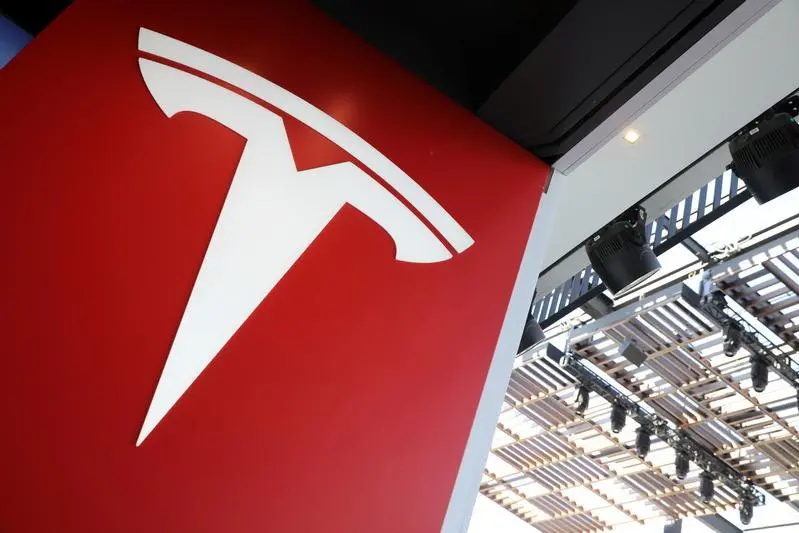PHOTO
NEW YORK - Tesla has some encouraging numbers in its fourth-quarter earnings unveiled on Wednesday. The average price per car nudged up just over 3% from the previous three months to almost $56,000, pushing overall revenue up more than 17%. Cash on hand surpassed $6 billion. And the energy business continued its new-found growth. But there’s no sign of anything to justify the $104 billion market value shareholders have put on Chief Executive Elon Musk’s electric-car maker, let alone the extra $12 billion or so they added after hours.
The manufacturer of the Model 3 made $105 million in the three months to the end of December. That marks a 26% decrease from the previous quarter, even though revenue rose by nearly a quarter.
There are two reasons for that. First the cost of generating the revenue – manufacturing and compensation expenses, for example – grew just as much as the top line. Operating expenses including research and development jumped 11%. That already left pre-tax earnings a tad below the third-quarter showing. But thanks to selling more cars abroad, Tesla’s tax rate ballooned to 24% from 15%.
Granted, these can be a sign of a growing company slowly maturing. That can also apply to the extra investment Tesla needs to make, not just to build more factories but also for future projects: Outlays for R&D as well as capital expenditure have been chugging along in the slow lane for several quarters and are likely to increase.
But Tesla still suffers from multiple complaints – amplified, of course, on Twitter – detailing horrendous problems getting cars serviced. And allegations of its cars spontaneously combusting or suffering sudden acceleration problems get a lot of airtime.
Even without these, though, its stock-market valuation only makes sense in one of three scenarios: Tesla is soon able to sustainably sell some 3 million cars a year, according to Breakingviews calculations; it soon becomes a mass provider of self-driving vehicles; or a mix of the two.
Any of these may yet come to pass. But none exists at the moment, nor is likely to for several years yet at least. Valuing companies is all about assessing probable outcomes. Tesla’s shareholders have lost touch with that reality.
CONTEXT NEWS
- Tesla on Jan. 29 reported fourth-quarter net income applicable to common shareholders of $105 million. Earnings of 58 cents a share compare to the 80-cent mean estimate of sell-side analysts, according to Refinitiv.
- The company also reports earnings that do not conform with generally accepted accounting principles. On that basis net income was $386 million and $2.14 a share, compared to the mean estimate of $1.72 a share.
- Revenue was $7.4 billion, higher than the $7 billion estimated.
(Editing by Lauren Silva Laughlin and Leigh Anderson)
© Reuters News 2020




















